God’s world seen through the lens of God’s Word.
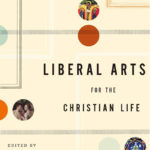 Liberal Arts for the Christian Life is a vision-setting festschrift for Wheaton College. Prompted by president Philip Ryken for his father, long-time professor of literature at the institution, Leland Ryken, the book marks a standard for Christian humanities’ study. Wheaton College is known for its commitment to a scholarly, broadminded approach to God’s world seen through the lens of God’s Word.
Liberal Arts for the Christian Life is a vision-setting festschrift for Wheaton College. Prompted by president Philip Ryken for his father, long-time professor of literature at the institution, Leland Ryken, the book marks a standard for Christian humanities’ study. Wheaton College is known for its commitment to a scholarly, broadminded approach to God’s world seen through the lens of God’s Word.
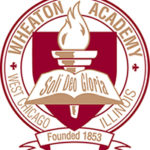 Wheaton College continues to be listed as a top school in the estimation of multiple college comparisons. Yet, surprisingly, Wheaton College began as a high school. Originally founded as Illinois Institute so abolitionists could educate their offspring, Wheaton College Academy (later, Wheaton Academy) became Wheaton College two years later. It was not until fifty years afterward that the two educational institutions would acquire their own unique educational directions and spaces. Wheaton Academy stayed in the original West Chicago site while Wheaton College acquired land on which the present institution rests in Wheaton, Illinois. Wheaton College is known for its commitment to faith-learning integration through its numerous programs, centers, institutes, departments, and graduate studies.
Wheaton College continues to be listed as a top school in the estimation of multiple college comparisons. Yet, surprisingly, Wheaton College began as a high school. Originally founded as Illinois Institute so abolitionists could educate their offspring, Wheaton College Academy (later, Wheaton Academy) became Wheaton College two years later. It was not until fifty years afterward that the two educational institutions would acquire their own unique educational directions and spaces. Wheaton Academy stayed in the original West Chicago site while Wheaton College acquired land on which the present institution rests in Wheaton, Illinois. Wheaton College is known for its commitment to faith-learning integration through its numerous programs, centers, institutes, departments, and graduate studies.
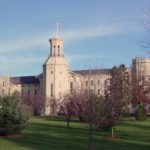 Wheaton’s storied history has been illumined by guiding lights of practiced Christian faith. Only eight presidents over 150 years suggests an air of stability for any institution. The longevity of Wheaton College may well be the witness of Christian commitment as seen through its leadership.
Wheaton’s storied history has been illumined by guiding lights of practiced Christian faith. Only eight presidents over 150 years suggests an air of stability for any institution. The longevity of Wheaton College may well be the witness of Christian commitment as seen through its leadership.
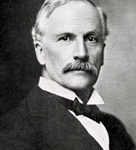 Jonathan Blanchard’s abolitionist sentiments preached boldly as the first president of the college established Wheaton’s ethos. Blanchard’s son Charles succeeded his father as president, serving a 40 year tenure (1882-1925). Charles Blanchard wrote a book on prayer, setting the standard for looking to Heaven for resources on earth. Indeed Blanchard’s years of service saw both physical plant and student body increases.
Jonathan Blanchard’s abolitionist sentiments preached boldly as the first president of the college established Wheaton’s ethos. Blanchard’s son Charles succeeded his father as president, serving a 40 year tenure (1882-1925). Charles Blanchard wrote a book on prayer, setting the standard for looking to Heaven for resources on earth. Indeed Blanchard’s years of service saw both physical plant and student body increases.
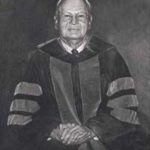 James Oliver Buswell, Wheaton’s third president (1926-40), wrote a 2-volume systematic theology. Due to his biblical foundations, Buswell navigated Wheaton through liberal theological currents overseeing academic accreditation while increasing PhD’s on the faculty.
James Oliver Buswell, Wheaton’s third president (1926-40), wrote a 2-volume systematic theology. Due to his biblical foundations, Buswell navigated Wheaton through liberal theological currents overseeing academic accreditation while increasing PhD’s on the faculty.
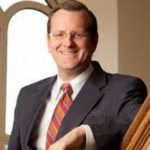 Raymond Edman’s quarter-century supervision (1940-65) is firmly set in submission to Jesus’ oversight of all of life. His books The Disciplines of Life and They Found the Secret have been read by tens of thousands. Edman passed the baton to Hudson T. Armerding who continued the legacy of long, fruitful service by Wheaton presidents (1965-82). His books on leadership were fulfilled through commitments in the arena of faith-learning integration. Richard Chase’s (1982-93) focus on rigorous standards within a Christian institution led next to Duane Litfin’s institutional building tenure (1993-2010) culminating in his widely influential book Conceiving the Christian College. Philip Ryken’s prodigious theological writing continues to moor Wheaton’s anchor to conservative Evangelical shores.
Raymond Edman’s quarter-century supervision (1940-65) is firmly set in submission to Jesus’ oversight of all of life. His books The Disciplines of Life and They Found the Secret have been read by tens of thousands. Edman passed the baton to Hudson T. Armerding who continued the legacy of long, fruitful service by Wheaton presidents (1965-82). His books on leadership were fulfilled through commitments in the arena of faith-learning integration. Richard Chase’s (1982-93) focus on rigorous standards within a Christian institution led next to Duane Litfin’s institutional building tenure (1993-2010) culminating in his widely influential book Conceiving the Christian College. Philip Ryken’s prodigious theological writing continues to moor Wheaton’s anchor to conservative Evangelical shores.
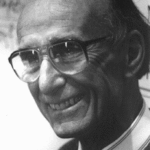 In a day where professors move often from one school to another, longevity through commitment should be celebrated. Arthur Holmes had a longstanding impact on the thinking of Wheaton College as an institution and on a plethora of individual students. Holmes is known for his many contributions to Christian faith-learning integration through books, essays, and lectures. His singular focus guided Wheaton College to both accrue faculty sensitive to the task but who also taught Christianly in the classroom. Holmes served the college in the philosophy department. Some of Holmes’ famous students include C. Stephen Evans (philosophy), Mark Noll (history), Roger Lundin (literature), David Jeffrey (literature), and Marianne Maye Thompson (biblical studies).
In a day where professors move often from one school to another, longevity through commitment should be celebrated. Arthur Holmes had a longstanding impact on the thinking of Wheaton College as an institution and on a plethora of individual students. Holmes is known for his many contributions to Christian faith-learning integration through books, essays, and lectures. His singular focus guided Wheaton College to both accrue faculty sensitive to the task but who also taught Christianly in the classroom. Holmes served the college in the philosophy department. Some of Holmes’ famous students include C. Stephen Evans (philosophy), Mark Noll (history), Roger Lundin (literature), David Jeffrey (literature), and Marianne Maye Thompson (biblical studies).
 Leland Ryken, professor of literature, winner of the 2003 Gutenberg Award, has taught at Wheaton College for half a century. Ryken’s impact on a Christian view of literature and the Christian imagination is inestimable. His scholarship includes over 30 books and 100 articles. Ryken’s contribution to English Standard Version of the Bible is groundbreaking; a literature professor invests his expertise in the translation of God’s Word. Monographs, essays, authored, edited books are all in addition to his students, numbering in the tens of thousands.
Leland Ryken, professor of literature, winner of the 2003 Gutenberg Award, has taught at Wheaton College for half a century. Ryken’s impact on a Christian view of literature and the Christian imagination is inestimable. His scholarship includes over 30 books and 100 articles. Ryken’s contribution to English Standard Version of the Bible is groundbreaking; a literature professor invests his expertise in the translation of God’s Word. Monographs, essays, authored, edited books are all in addition to his students, numbering in the tens of thousands.
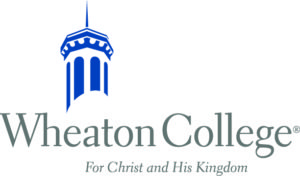 Referred to as a “Christian Ivy League” school or by some as “The Christian Harvard,” Wheaton College has enjoyed such status because of strong academic commitments. Believing and practicing “all truth is God’s truth,” faculty at Wheaton are trained in faith-learning integration commitments within their own disciplines. Wheaton’s academic programming is not so different in content but is ranked so highly because of professorial expertise. Both undergraduate and graduate schools have academic luminaries in their ranks. Prolific writers combined with prodigious scholarship sets the standard high at Wheaton.
Referred to as a “Christian Ivy League” school or by some as “The Christian Harvard,” Wheaton College has enjoyed such status because of strong academic commitments. Believing and practicing “all truth is God’s truth,” faculty at Wheaton are trained in faith-learning integration commitments within their own disciplines. Wheaton’s academic programming is not so different in content but is ranked so highly because of professorial expertise. Both undergraduate and graduate schools have academic luminaries in their ranks. Prolific writers combined with prodigious scholarship sets the standard high at Wheaton.
 The Wade Center was established in 1965 as a research foundation on the works of British authors such as C.S. Lewis, Owen Barfield, and G.K. Chesterton. Grafted in to the Wheaton College milieu The Wade Center stands as continual commitment to Christian scholarship.
The Wade Center was established in 1965 as a research foundation on the works of British authors such as C.S. Lewis, Owen Barfield, and G.K. Chesterton. Grafted in to the Wheaton College milieu The Wade Center stands as continual commitment to Christian scholarship.
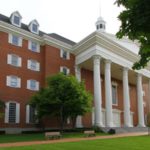 In conjunction with one of its famous alumni and his evangelistic association, The Billy Graham Center (now named The Billy Graham Center for Evangelism) was opened in 1980. The center houses a museum and archives of the past but a forward view to world evangelism by housing various institutes, departments, initiatives, and ministries as the website notes “to share Jesus well.”
In conjunction with one of its famous alumni and his evangelistic association, The Billy Graham Center (now named The Billy Graham Center for Evangelism) was opened in 1980. The center houses a museum and archives of the past but a forward view to world evangelism by housing various institutes, departments, initiatives, and ministries as the website notes “to share Jesus well.”
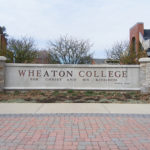 Wheaton College’s influence will be as long lasting as its commitment to the orthodox Christian faith expressed through its motto “For Christ and His Kingdom.” Wheaton’s mission states that the college “serves Jesus” educating “the whole person.” Wheaton’s imprint on Christian higher education rests on its storied history, great leadership, superb scholarship, commitment to faith-learning integration, and influence throughout the world in the lives of its graduates.
Wheaton College’s influence will be as long lasting as its commitment to the orthodox Christian faith expressed through its motto “For Christ and His Kingdom.” Wheaton’s mission states that the college “serves Jesus” educating “the whole person.” Wheaton’s imprint on Christian higher education rests on its storied history, great leadership, superb scholarship, commitment to faith-learning integration, and influence throughout the world in the lives of its graduates.
 “Wheaton College” © is one of 22 essays included in the History of Christianity in the United States (Rowman & Littlefield, 2016) by Dr. Mark Eckel, President of The Comenius Institute.
“Wheaton College” © is one of 22 essays included in the History of Christianity in the United States (Rowman & Littlefield, 2016) by Dr. Mark Eckel, President of The Comenius Institute.
Resources & References
Blanchard, Charles A. Getting Things from God: A Study of the Prayer Life. Chicago, IL: The Bible Institute, Colportage Association, 1915.
Buswell, James Oliver. Systematic Theology, 1 vol. Grand Rapids, MI: Zondervan, 1962.
David, Jeffry C. Davis and Philip Graham Ryken. Liberal Arts for the Christian Life. Wheaton, IL: Crossway, 2014.
Edman, V. Raymond. The Disciplines of Life. Wheaton, IL: Van Kampen Press, 1948.
__________. They Found the Secret. Grand Rapids, MI: Zondervan, 1966.
Evans, C. Stephen. “Arthur Holmes: A Life Well Lived,” Books and Culture, January-February 2012, p. 3.
Holmes, Arthur F. The Idea of a Christian College. Reprint. Grand Rapids, MI: Eerdmans, 1987.
Litfin, Duane. Conceiving the Christian College. Grand Rapids, MI: Eerdmans, 2004.
“Wheaton Academy, Our History.” https://www.wheatonacademy.org/RelId/606571/ISvars/default/Our_History.htm Accessed 20 January 2015.
“Wheaton College, History.” https://wheaton.edu/About-Wheaton/History Accessed 20 January 2015.
“Wheaton College, History of the BGCE.” https://www.wheaton.edu/BGCE/About-Us/History Accessed 21 January 2015
“Wheaton College, Wade Center.” https://www.wheaton.edu/wadecenter Accessed 21 January 2015

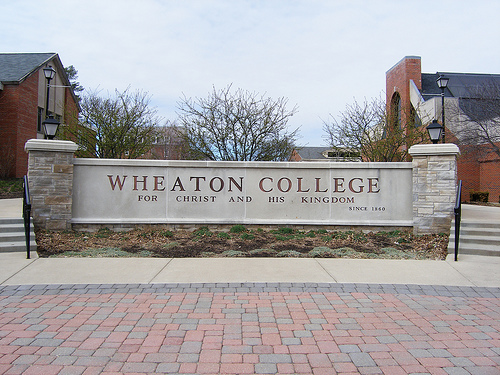
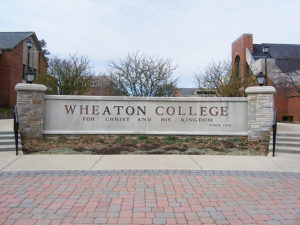
Not only for #abolitionist point-of-view, Blanchard had been ousted from another institution because of his overtly #emancipationist pov among abolitionists. Thus Wheaton’s founding.
I liked this blog post! I read your blog when I got time after school and your always coming
out with some great stuff. I shared this in my facebook
and my followers love it! keep up the good work. 🙂